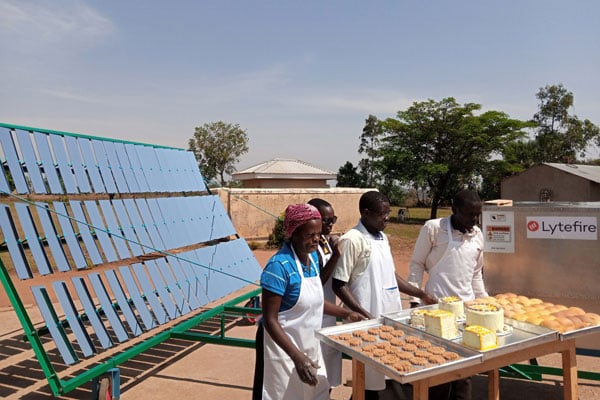Prime
Subsidize the cost of solar panels

Author: Cirrus Kabaale. PHOTO/COURTESY
What you need to know:
...solar and other renewable energy electrification efforts in the country remain uncoordinated
Solar is a relatively inexpensive source of electrical energy where hydro-electric power is inconvenient and unreasonably expensive. The burden of monthly charges of hydro-electric power has made me think twice about using it. However, monthly payments would not be such a problem but the bills seem to be unreasonable.
Solar power is the conversant of sunlight free electricity, either directly using photovoltaic (PV), or indirectly using concentrated solar power (CSP). Unlike hydro-electric power, solar power involves no bureaucracy and single cost during installation. The reason is that there is no need for poles or lines and it is a matter of purchasing a solar panels that fit one’s purse that is then installed on the roof of the house. Because solar power is cheaper, the government should think of subsidizing the cost solar panels. If this is done, clean power will become more affordable to many Ugandans and therefore, most parts of the country, especially in rural areas, will have access to it. The low cost of solar electricity will also help low income earners to have light in their houses without suffering the effects of smoke produced by lamps and tadobas. It goes without saying that solar power is cost effective and is therefore the best alternative for Uganda’s poor. It is the best substitute because once fixed, there are no monthly charges to pay and nor is there abrupt increase of monthly payments per unit.
Access to affordable energy is crucial in the eradication of poverty through advancement in health, education, water supply and industrialization, and combating climate change.
Although the Uganda is making heavy investments in the construction of hydro-power dams and extending the grid across the country to provide electricity to all, Government needs to broaden its scope and focus more on investing heavily in other renewable sources particularly off-grid solar energy.
Increased investment in solar energy would not only increase access to affordable and clean energy for, especially rural households in Uganda, but it would also help to reduce carbon emissions from use of fossil fuels in especially urban centres, thereby, addressing one of the biggest drivers of global warming and climate change.
In addition, increased investment in solar powered water irrigation systems could improve agricultural production in rural areas, thereby, addressing poverty and the challenges of food insecurity, contributing to the SDG on zero hunger. Further, solar powered water pumps would enable rural households to access clean water and would improve the quality of education and life of girls and women respectively. With less household chores such as fetching water from wells, girls would better be able to stay in school. Good health and wellbeing would be ensured through increasing access to safe water and sanitation as poor sanitation contributes to diarrhea, the second leading cause of death in children under five worldwide with Uganda not being spared.
Therefore, the solar energy sector continues to face several challenges because the government lacks laws and policies to specifically address the solar challenges such as Solar Energy Policy, consumer protection policy and others. This is why there are several cases of low-quality solar products on the market in Uganda. This is an obstacle for the off-grid solar industry at large because the distribution of substandard products negatively affects the consumer citizens that mostly deserve access to modern and reliable energy services, such as durable and high-quality solar systems.
There is need for government to create a market space where Ugandans are aware of good quality products and are guaranteed such when they make the investment to access modern energy services. This is important because solar energy providers not only need to ensure customers enjoy their experience with solar products, but also appreciate the importance of having high-quality hardware and service.
As a result, solar and other renewable energy electrification efforts in the country remain uncoordinated. This explains why the government’s efforts to expand electricity access and affordability especially for the poor and vulnerable continue to fail.
Cirrus Kabaale, Strategic Response on Environmental Conservation (STREC).




